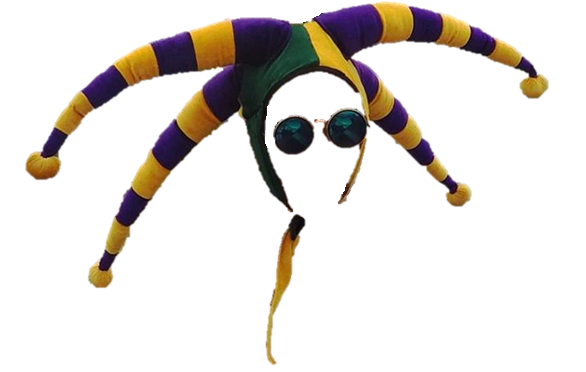Bufonería Literaria; Parte 1, el tesis
I am revising my personal research paper on sacred jesters in spanish with respect to Don Quijote. I decided that Don Quijote is a fool, and I want to make a statement about it!!!
Estoy revisando mi trabajo de investigación personal sobre jesteres sagrados en español con respecto a Don Quijote. ¡Decidí que Don Quijote es un tonto, y quiero hacer una declaración al respecto!
This has been a great journey of self-realization, aided by one of the great classics of literature, Don Quijote by Cervantes!
¡Esta ha sido un gran viaje de autorrealización, ayudando por un de los grandes clásicos de literatura, Don Quijote por Cervantes!
Please help me if you see an error, and put it in the comments! Your Spanish language expertise, comments, roasts would be greatly detested, rejected, and secretly taken to heart ahahahah :P
¡Por favor, ayudame si ve un error, y pon en la sección de comentarios! Su experiencia en el idioma español, los comentarios, los asados serían muy detestados, rechazados, y tomados en secreto ajajajajaj :P
I present to you the thesis paragraph followed by citations.
Les presento el párrafo de tesis seguido de citas.
Bufonería Literaria
Don Quijote funciona como un espejo para la sociedad; más específico, el libro y el personaje es un tipo de espejo humano o sea, un jester postmodernista. A primera vista a nuestro caballero fracasado es una imagen de valor nominal: un resultado de la locura. Una visión figurativa y más profunda a la manifestación del personaje en la mente de Cervantes y Don “Alonso Quijano el Bueno” (Applebaum, 248), la función de este personaje en su sociedad, y las resultas de tener él de causar los problemas, hacen el lector para considerar si la razón para mostrar la locura es intencional o un tren fuera de control. Como cualquier jester podría sugerir, “a successful account of Don Quijote must attend not only to the hero’s failure but also to weaknesses in the societal structure brought to light through his madness” (El Saffar).
Bibliografía
Applebaum, Stanley and Miguel de Cervantes Saavedra. “Selections from Don Quixote. Side-by-Side Reading Companion.” Mineola: Dover Dual Language, 1999. Print.
El Saffar, Ruth. “In Praise of What Is Left Unsaid: Thoughts on Women and Lack in Don Quijote.” MLN, vol. 103, no. 2, 1988, pp. 205–222. www.jstor.org/stable/2905339.
Muchos Gracias y paz,
CJ

You got a 14.77% upvote from @ipromote courtesy of @cloudjester!
If you believe this post is spam or abuse, please report it to our Discord #abuse channel.
If you want to support our Curation Digest or our Spam & Abuse prevention efforts, please vote @themarkymark as witness.
You got a 9.27% upvote from @upmyvote courtesy of @cloudjester!
If you believe this post is spam or abuse, please report it to our Discord #abuse channel.
If you want to support our Curation Digest or our Spam & Abuse prevention efforts, please vote @themarkymark as witness.
This post has received a 9.84 % upvote from @sleeplesswhale thanks to: @cloudjester.
You got a 10.26% upvote from @brupvoter courtesy of @cloudjester!
Congratulations @cloudjester! You received a personal award!
Click here to view your Board of Honor
Congratulations @cloudjester! You received a personal award!
You can view your badges on your Steem Board and compare to others on the Steem Ranking
Vote for @Steemitboard as a witness to get one more award and increased upvotes!